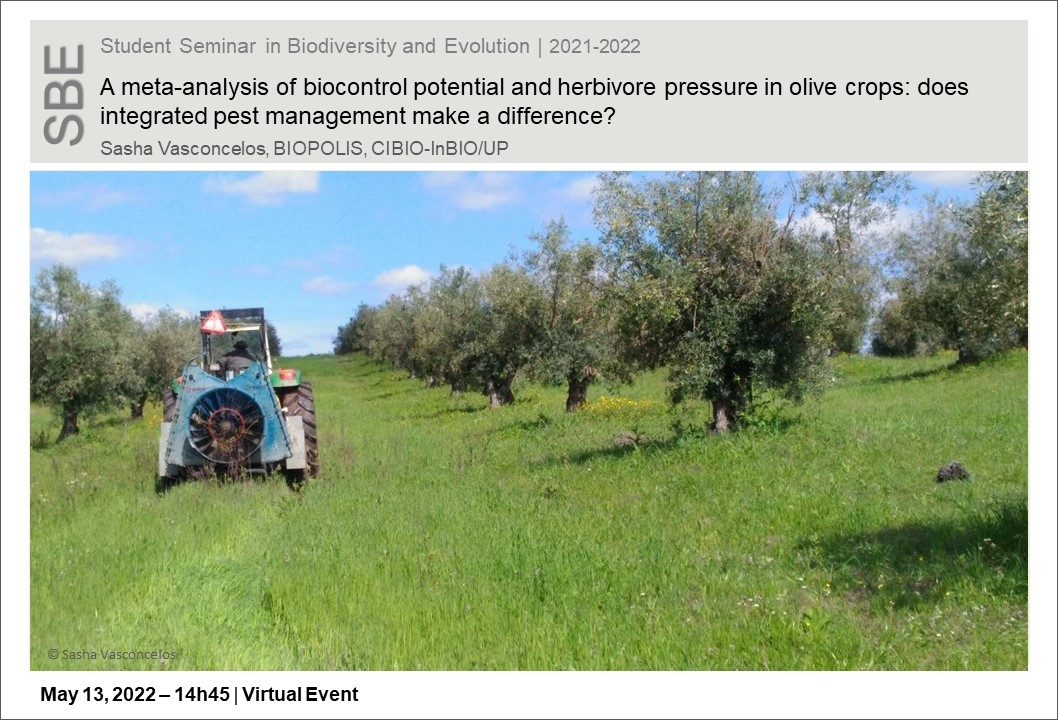A meta-analysis of biocontrol potential and herbivore pressure in olive crops: does integrated pest management make a difference?
13 May 2022 - Sasha Vasconcelos, BIOPOLIS, CIBIO-InBIO/UP | 14h45 | Online

STUDENT SEMINAR IN BIODIVERSITY AND EVOLUTION
Agricultural policies in the European Union (EU) are increasingly promoting organic management and integrated pest management (IPM) as environmentally friendly alternatives to high-input conventional management. While there is consensus that organic management is largely beneficial for biodiversity, including the natural enemies of crop pests, IPM has been much less scrutinized. We conducted a meta-analysis based on 294 observations extracted from 18 studies to compare the effects of conventional, IPM and organic management on biocontrol potential and herbivore pressure in olive, an important cash crop in the EU. Information about the management practices used was also compiled, to assess differences in intensity between the three management strategies. Results suggest that IPM is predominantly based on intensive practices, employing chemical control rather than preventive measures as a first resort. Biocontrol potential and herbivore pressure were similar in conventional management and IPM. Moreover, biocontrol potential was higher in organic crops than in crops under IPM, especially when considering canopy-dwelling natural enemies. Although organic management enhanced biocontrol potential, it also benefitted some olive pests, and in both cases effects were more pronounced at warmer temperatures. Our results suggest that, in its current form, IPM might not significantly affect biocontrol potential or herbivore pressure when compared with conventional olive crop management. A shift to a more comprehensive implementation of IPM practices is thus needed, involving the use of proactive measures to promote natural enemies and regulate olive pests before resorting to chemical control. Moreover, greater use of non-chemical inputs might be required for effective regulation of olive pests in organic olive crops.
Sasha is finalizing her PhD studies in the BIODIV doctoral programme at the University of Porto. She holds a BSc in Environmental Biology from the University of Lisbon, and an MSc in Conservation Biology from the University of Évora. Her supervisory team includes Pedro Beja (CIBIO-InBIO – University of Porto), Mattias Jonsson (Swedish University of Agricultural Sciences) and Ruben Heleno (University of Coimbra), and her research focuses on understanding how olive farming intensification affects arthropod communities, as well as the potential for provision of biological control services.